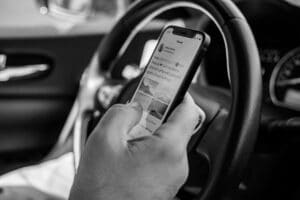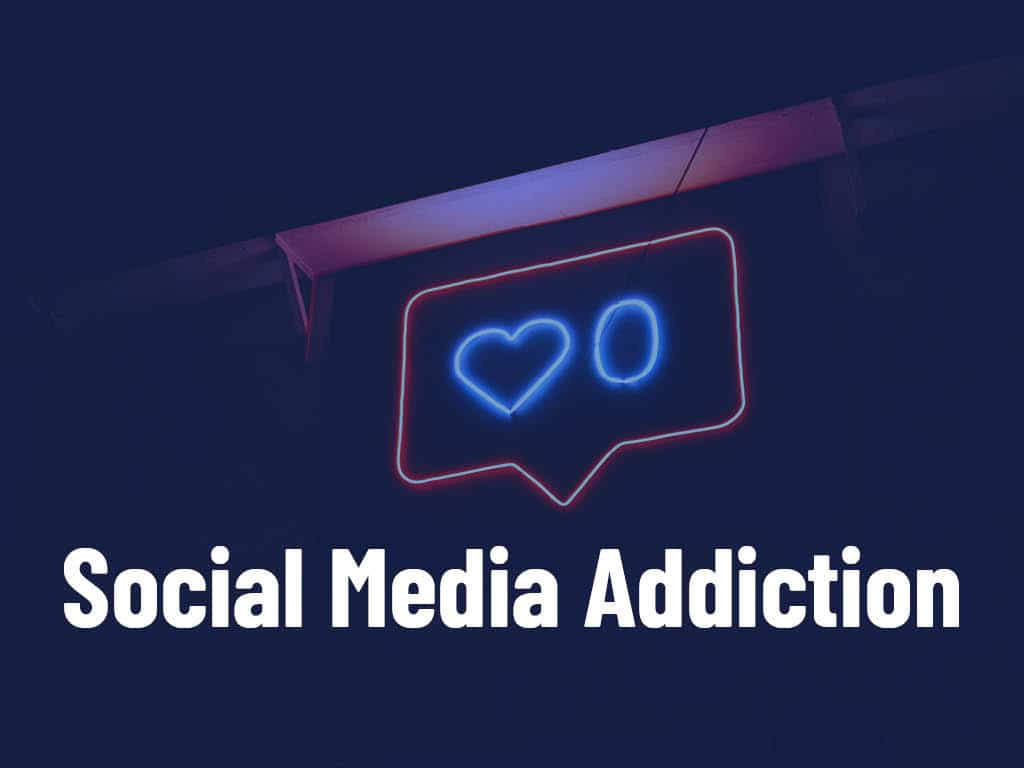Did you know that using social media can be similar to gambling? Just like placing a bet on a slot machine, scrolling through social media can give you variable and unpredictable rewards. You can never be certain whether your social media feed will display something engaging, and so it is possible to scroll indefinitely, looking for a “win.”
Also like gambling, some people are able to use social media without too many negative consequences. For others, however, using social media can lead to many problems. People with social media problems can experience symptoms that are similar to those of a gambling disorder, including:
- preoccupation (thinking about social media more and more)
- mood modification (using social media to relieve difficult emotions)
- tolerance (increasing social media use in order to get the same result)
- withdrawal (experiencing psychological and physical discomfort when you aren’t able to use social media)
- conflict (putting relationships, education, or work at risk in order to use social media)
- relapse (unsuccessful attempts at reducing the use of social media)
So far, social media addiction has not been recognized as diagnosable mental health condition by the American Psychiatric Association, but experts are building a body of evidence that shows alarming trends in social media usage, especially among young people.
PREVALENCE
In America, 4.5% of adolescents are at-risk for addiction.
Between 5 to 10% of Americans of all ages could be experiencing social media addiction.
Worldwide, about 210 million people are likely experiencing social media addiction.
SIGNS OF A SOCIAL MEDIA PROBLEM

SPENDING TOO MUCH TIME ON SOCIAL MEDIA
Some people have difficulty controlling their urges to use social media.

USING SOCIAL MEDIA AT INAPPROPRIATE TIMES
Using social media at times that jeopardizes your education, job, or life is a sign that it could be a problem.

USING SOCIAL MEDIA TO MANAGE SELF-IMAGE
Some people find that they feel overly concerned with their image on social media.
ADDICTION REWIRES THE BRAIN
Addictions to things like gambling or alcohol rewire a person’s brain. Researchers are still learning about how social media addiction works, but it is possible that a person’s brain gets rewired just like it would with other addictions.
For youth, whose brains are still developing, this is especially concerning. Youth simply don’t have mature enough brains to recognize the risks of different activities or to notice when there is a problem.
IMPACTS OF A SOCIAL MEDIA PROBLEM
A social media addiction can lead to significant negative impacts, including
- less healthy social relationships
- poor performance at work or school
- sleep problems
- decreased satisfaction with life
- feelings of jealousy, anxiety, and depression
LEARN MORE
Watch the video to learn more about social media addiction.
PREVENTING SOCIAL MEDIA ADDICTION
- Turn off notifications from social media on your phone.
- Be sure to balance social media with other activities in your life.
- If you are a parent, talk about social media use with your kids, set appropriate limits, and model good behavior.
HELP IS AVAILABLE
If you are experiencing mental health problems related to social media, text 988 for resources and support.
SOURCES
, Zsila, A., Király, O. Maraz, A., Elekes, Z., Griffiths. M. D., Andreassen, C. S., & Demetrovics, Z. (2017). Problematic social media use: results from a large-scale nationally representative adolescent sample. PLoS One, 12(1). https://doi.org/10.1371/journal.pone.0169839.
He, Q., Turel, O., Brevers, D., & Bechara, A. (2017). Excess social media use in normal populations is associated with amygdala-striatal but not with prefrontal morphology. Psychiatry Research: Neuroimaging, 30(269): 31-35. https://doi.org/10.1016/j.pscychresns.2017.09.003.
Longstreet, P., & Brooks, S. (2017). Life satisfaction: A key to managing internet & social media addiction. Technology in Society, 50, 73-77. https://doi.org/10.1016/j.techsoc.2017.05.003.
Ricci, J. (2018). The growing case for social media addiction. The California State University. https://www.calstate.edu/csu-system/news/Pages/Social-Media-Addiction.
Sun, Y., & Zhang, Y. (2021). A review of theories and models applied in studies of social media addiction and implications for future research. Addictive Behaviors, 114. https://doi.org/10.1016/j.addbeh.2020.106699.
Turel, O., Brevers, D., & Bechara, A. (2018). Time distortion when users at-risk for social media addiction engage in non-social media tasks. Journal of Psychiatric Research, 97, 84-88. https://doi.org/10.1016/j.jpsychires.2017.11.014.

